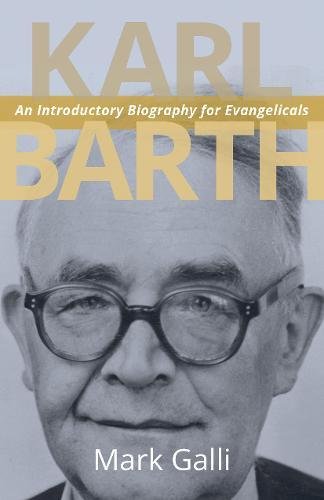Q. If we are a product of our education, Karl Barth seems to have on the one hand been initially deeply influenced by his education in terms of ‘liberalism’ which is to say the reductio ad absurdum of religion to ‘a feeling of absolute dependence on God’ or a merely subjective inclination, or inner moral compass. In other words, an anthropocentric religion— which not incidentally was to be a hallmark at Marburg, right through the most famous Marburger—Bultmann, who even thought that the way into Pauline theology and the essence of it was Paul’s anthropological terms like flesh etc. Against all of this (including the subjective side of Pietism which nonetheless tended to be theological orthodox) Barth was to react strongly, partly due to the shattering experiences of WWI, which ruined the notion that humankind was basically good and the measure of all things. Barth, in some ways, seems to have been an example of a person who escaped from his education like a man fleeing a burning building, and was to react against it ever after. Is this just another illustration of his feisty personality, of his love of going against the grain of things? What role should education, ideally, play in a Christian’s life? Should it challenge the socks off of his long-cherished beliefs and childhood indoctrinations? Should it nurture them in ‘the faith once given’ and hope it takes? It’s something of a miracle that Barth didn’t just chuck the whole religion thing after that education.
A. It is somewhat of a miracle, but “the times they were a-changing.” That is to say, when Barth started to question the liberalism of his day, he found many willing listeners. Many younger theologians were already getting restless with the thinness of liberalism, and Barth articulated concerns that they perhaps couldn’t quite articulate.
But of course, the relationship of the individual to the educational institution is dynamic, and a great deal depends on personality. My oldest daughter went to one of the most liberal schools in America (Scripps College in the Claremont system). Given her strong-headedness, she came out a stronger Christian than ever. I kid that if she had gone to Wheaton or Asbury, she would have come out an agnostic!
Q. I must say, that I find it interesting, and even odd, that while Barth was able to preach what liberalism taught him, and he recognized that it was not really producing a bumper crop of Christians, nonetheless, it was not until he experienced the shock of his teachers endorsing the German engagement in WWI, endorsed an ethic of war and killing, that he began to realize ‘human experience’ could not be the basis of preaching and theology. In other words, it took a different experience to make him realize that mere human experience couldn’t be the heart of the Gospel, and thence he turned to a more theocentric focus. How would you say his pastoral experience changed or confirmed his understanding of the Gospel? Or did that change only come from the shock of theologians endorsing a brutal war?
A. Barth would not deny that experience plays a role in faith. In fact, I suspect that he had some sort of direct and profound experience of Jesus early in his ministry. I have no way of proving this, but it is a hunch based on how he talks about Jesus Christ so often; he always insists on talking about Jesus in concrete ways, which usually means talking about him as a person. He is so adamantly opposed to any theology talk that moves into the abstract; he always wants to the talk to be about the concrete, the real. Jesus for him was not an idea, a principle, a great teacher, but someone personal.
In any case, Barth said, as valuable and enriching as experience is, it cannot be the theological foundation for faith. And thus his desire to ground theology in the revelation of God in Christ.
One reason for this was his acceptance of Ludwig Feuerbach’s conclusion that all talk about God was nothing more than talk about the self. Feuerbach looked around and concluded that Christians imagined the God they wanted or needed—what their experience was looking for– and essentially created that God in their heads. Schleiermacher and company tried to argue with this, saying the “feeling of absolute dependence” suggested a being outside the self. Barth said, “Baloney, that could simply indicate a desire to experience something absolute.”
I think we’ve all been in the company of Christians who say, “God told me this or that,” or “I felt the presence of God in the service” and so forth. While I acknowledge that God still does speak and make his presence known—and I’ve had such experiences myself–I always wonder, “How do we know this? Could it not be just hormones—or indigestion?”
The point is we can’t know it. There’s just too much going on inside us to separate the wheat from the chaff of experience. What we can know is what God has done in Christ for us, what has been revealed to us. When we look outside ourselves to what God had done—that’s a much more solid footing to ground one’s theology. Is it a perfect foundation? No. Cannot our subjectivity interfere with hearing aright the revelation of God in Christ? Of course. But we are on much steadier ground if we start with revelation.
Q. You don’t say much, at least in the early portion of your book about the relationship between Barth and his wife. What do we know about that, other than that she was seven years his junior? Is there evidence of her influence on his thinking or theologizing?
A. His wife, no. I couldn’t see anything anywhere that suggested an influence. He admired her as a faithful wife and mother, but that’s about it.













